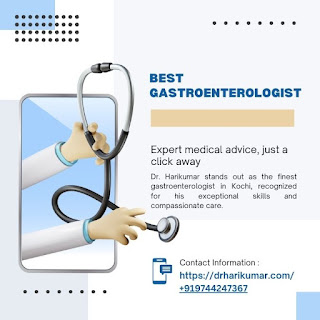Gut Health Basics: What Every Patient Should Know

When people talk about good health, the focus is often on diet, exercise, or mental well-being — but one of the most crucial aspects often overlooked is gut health . Your digestive system plays a central role in everything from nutrient absorption to immune defense. Whether you're experiencing mild discomfort or more serious gastrointestinal symptoms, maintaining a healthy gut should be a top priority. That's why a gastroenterologist is often your best partner in understanding and managing this complex system. What Is Gut Health? Gut health refers to the balance and function of the gastrointestinal (GI) tract — which includes the stomach, small intestine, colon, and everything in between. It also involves the trillions of microorganisms (collectively known as the gut microbiome ) that live in your intestines and help with digestion, immunity, and even mental health. A healthy gut means: Efficient digestion and absorption of nutrients Regular bowel movements without pain ...





.jpg)


